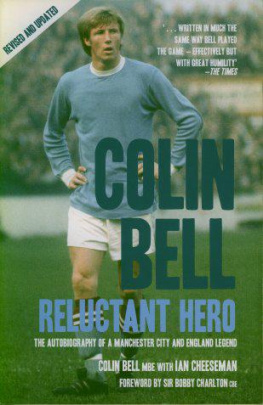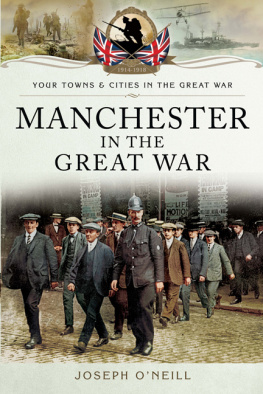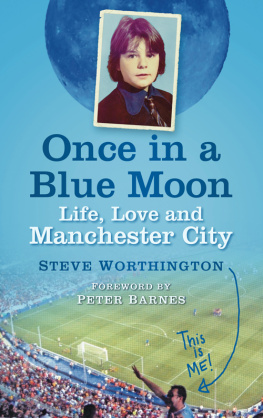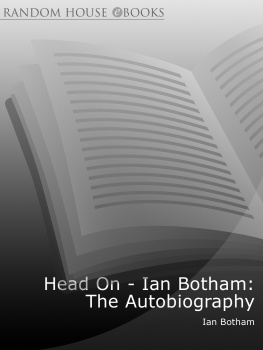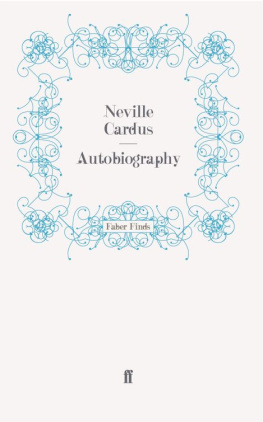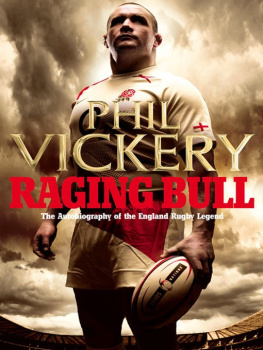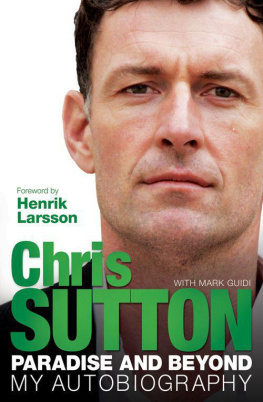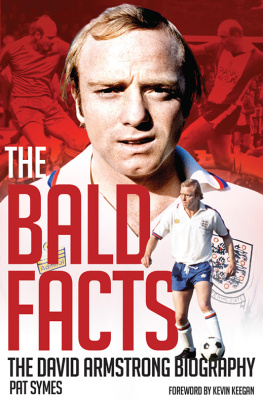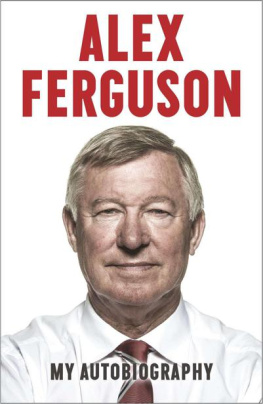Colin Bell played for Manchester City between 1966 and 1979, during which time he made just under 500 appearances and scored 152 goals. He still lives in Manchester.
Ian Cheeseman is a reporter for BBC Radio Manchester and has been a Manchester City fan all his life. He is forty-six years old and is married with two children. This is his first book.
COLIN BELL
RELUCTANT HERO
The Autobiography of a Manchester City and England Legend
Colin Bell MBE with Ian Cheeseman
Foreword by Sir Bobby Charlton CBE
M AINSTREA M
PUBLISHING
EDINBURGH AND LONDON
Foreword
I hope City fans are not upset that an old Man United player is writing the foreword for one of their great heroes. I would have been very disappointed if I'd not had the opportunity. Colin Bell has been a great pal of mine but he's also one of my great heroes. I used to love watching him play because he comes from the same part of the world as me. We both, in our own ways, went to try and find our fame and fortune in football. I was always very aware of Colin Bell. I'm very proud that I've got the opportunity to say what I think of him and that people have got the chance to read about him.
Colin Bell was unquestionably a great player, and I don't use the word 'great' lightly. He was my kind of player. I used to read about him before I actually saw him play, which was when he was at Bury. I used to scan the papers every week to see how the local teams had done and I came to the conclusion that Colin Bell must be a good player because he seemed to be man of the match every week. Once I found out he came from the North-east, I followed his progress even more closely. It really upset me when City signed him.
He was a great athlete with a great football brain and a very dedicated person. He didn't need motivating; he did that himself. He had his own standards and you can't fail to be impressed by his playing record.
I got the opportunity to work with him occasionally when we were in the same squad for England and I was amazed by his strength and fitness. When a player with those assets has also got a football brain, and you ally that to pace and the other abilities he had, you have a really exceptional player. I was really disappointed we didn't get him at Old Trafford; sadly, I don't think there was ever a chance. I was always pleased when Colin did well - I'm sure the North-east was very proud of him.
He epitomised everything about that part of the country: people there work hard and play hard. It's tough in that area and to succeed you have to do something a bit special. Colin Bell did just that. He was probably undersold as a footballer at national level because he happened to burst onto the international scene just after England won the World Cup. At that time, the team almost picked itself, with the likes of Alan Ball and Martin Peters standing in Colin's way. I never felt he got the chance to show what he could do at international level. I think I only played two or three games with him; he often came on as a substitute at the time I was in the team.
I wish I could have started more games alongside Colin Bell but I had a great admiration for him as a player and as a person - and still have. He scored against us (United) on many occasions, which was always a hard pill to swallow! You can't ignore talent and he was an unbelievable talent. Had he played for England in an earlier era, or a little later, he would be a more world-renowned player - not just a player who stood out for one of the great club sides in England.
He was an outstanding player and it's been a huge privilege and pleasure to watch him play with such great movement, grace, ability, stamina and flair. He scored his fair share of goals, too. I understand why he's rated as the best Manchester City player of all time and I would agree with that. I'm honoured to tell people my thoughts on Colin Bell and be part of a book that allows people to find out more about him.
Sir Bobby Charlton CBE
Introduction
I first met Colin Bell at a charity cricket match at Prestwich Heys. I was a small boy and he was the greatest footballer that had ever lived. I shook like a leaf as he signed the picture of him that I had carefully cut out of one of the football magazines. I idolised Colin because he was more than just a great player. He had a dignity, a modesty and even a shyness that made it easy for me to identify with him. That was back in the early 1970s.
More than three decades and a lifetime of experiences later, I got to know Colin through occasional appearances together at Manchester City supporters' functions. During the summer of 2002, the year Manchester staged the Commonwealth Games, I was offered the chance, through the BBC, to nominate someone to carry the baton on one leg of its pre-Games journey around the country. I nominated my hero, Colin Bell, because I knew he wouldn't be pushing himself forward to do such a thing.
He accepted my 'no strings attached' offer and quietly, and without any publicity, ran along Ashton Old Road near the City of Manchester Stadium on a sunny afternoon in July. He rang me a few days later to thank me for my part in setting up the opportunity and for fulfilling my promise not to put him in the media spotlight, which he is so determined to avoid.
We talked for about 20 minutes about his experiences as part of the Queen's Jubilee Baton Relay, Manchester City and lots of other things. Eventually, as the conversation concluded, he thanked me again, several times. I suggested that if he was so grateful he might want to grant me an exclusive radio interview. 'Not likely,' he replied, 'I'm not comfortable doing that sort of thing.' I countered with the suggestion that I might write his life story in a book. The rest, of course, is history.
During the last couple of years, I've spent many happy hours in the company of Colin, getting to know him and gaining his trust. On the journey up to Hesleden, the small village in County Durham where he grew up, we talked about anything and everything. I met his sister, saw the school he attended as a boy, visited the places he'd lived, played and learned his football. He wouldn't make himself known at his former school; he didn't want any fuss.
At one of his old clubs, Horden Colliery Welfare Juniors, we were refused access to their ground to take photographs, so I ended up taking one while both he and I were balanced precariously on ornamental rocks in the car park next to the main gate; that was after we'd both shinned up a drainpipe on one side of the stadium to get a better view! When I'd requested access, their officials told us we had to put our request in writing to the 'committee'. Colin stood quietly behind me as I tried to convince them to make an exception for a true sporting legend. We failed, because to some people rules are rules!
It was a daunting prospect to write the story of the most idolised player in Manchester City's history. I was honoured to have the task of spending my 'day job' commentating on my team home and away for BBC radio, and spending much of my free time in the company of, or writing about, the greatest player to have played football.
The biggest potential problem was that I might not like him. The image I had built up of him from watching him play, reading about him and from his rare public appearances, was of someone who was special both on and off a football pitch. Someone who had never forgotten his roots and was still very grounded, despite the relative riches he had enjoyed as a professional footballer. The more I got to know him, the more I realised I had nothing to fear. The word 'great' is overused but in Colin's case I can truly say he is a great man, as well as being a great footballer.
Once he drops his guard, he is funny, entertaining and totally sincere. To some, he might seem distant or even aloof but that's just his shyness. Even now he seems amazed that he's still remembered so fondly and feels awkward in the public spotlight. As a youngster, he'd cross the road to avoid being recognised; these days he'll blend into the background at every opportunity.

